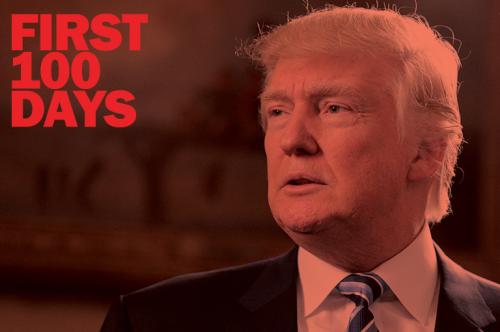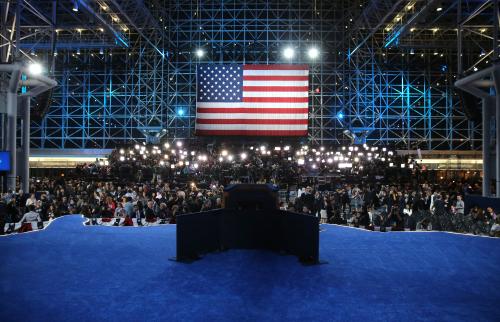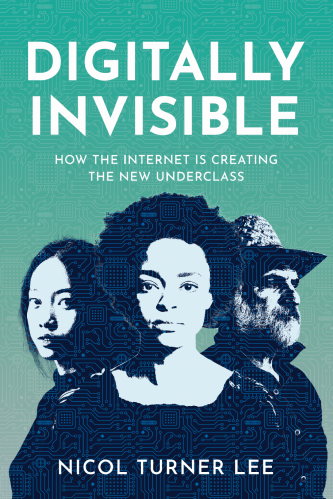For most informed observers, regardless of party affiliation, expectations for Donald Trump’s presidency were low. A political novice with no prior governing experience that campaigned on a limited and frequently vague platform, Trump was doomed to the steepest of learning curves. After all, every president faces a learning curve—even the most experienced and prepared and who have the best and brightest of their party joining them at the helm of the ship of state. If you possess neither these internal or external resources, the path ahead is unimaginably impossible to travel successfully.
Scholars have considered how—and whether—presidents learn in a variety of ways. The preponderance of the resultant academic evidence suggests that presidents do learn, though there are individual differences in how they go about doing so. For example, James Best shows that Ronald Reagan relied more on his Cabinet secretaries while Jimmy Carter utilized the policy apparatus of the institutional White House. Much of every president’s learning depends on the administrative structure (and the individuals who occupy it) that surround the president. Over time, not only do presidents and their advisers learn how to be more effective at their jobs, but presidents learn to more effectively manage the federal bureaucracy. Given the historically sluggish pace of the current administration to staff both the White House and the broader bureaucracy, this might not bode well for a crash course in presidential politics; however, presidents don’t just learn from government resources.
For example, Christopher Karpowitz has shown that presidents learn from media coverage of their administrations, while Han Soo Lee provides systematic evidence that presidents learn from public reactions. That is, presidents become more responsive to popular preferences when their public approval dips, so long as the public has previously either rewarded responsive behavior or punished unresponsive behavior. So even a relatively empty administration should not stop Trump from growing as a political executive. The real factor that will determine if he does learn, of course, is whether he chooses to do so.
For Trump to learn (or be willing to learn), he first must be aware of (and dissatisfied with) his own ignorance. Many observers remain skeptical of this possibility, arguing he instead remains “the most clueless man in Washington.” However, Trump’s recent admission that he thought being president would be easier than his life previously is at least modest evidence that he is reassessing what he thought he knew about the institution and the requirements it entails. This concession is similar to his acknowledgment in late February that reforming national health care policy is “unbelievably complex.” Sure, the president of the United States ought to understand coming in that the job is a very tough one and that reforming an industry that accounts for nearly one-fifth of the national economy is a complicated task. But the fact that these moments of recognition are occurring indicates education is happening, however remedial.
More substantively, Derek Shearer, who served as ambassador to Finland during the Clinton Administration, has identified a few instances in which President Trump has adjusted to realities that Candidate Trump defied. For example, Trump’s early dalliance with ending the One China policy has given way to not only reaffirmation of that policy but recent personal praise of China’s president, Xi Jinping. Similarly, despite his on-again, off-again endorsement of torture as a national security tool and his continued belief that it “absolutely works,” early in his administration he announced he would defer to the judgment of others with greater experience in the matter, notably Secretary of Defense James Mattis. Fareed Zakaria has identified several other changes, which he labels flip-flops but that could also plausibly be called evidence of learning: no longer considering China a currency manipulator, recognizing the crucial role of both NATO and the Export-Import Bank, accepting that actions by the Assad regime in Syria constituted war crimes, etcetera.
This is not to say that, 100 days into his presidency, Trump has made up for the experiential disadvantage he brought with him into the White House. He still seems to have limited understanding of his own proposals and continues to shock not just observers but also his own staff with unforced errors such as inviting the human rights-abusing president of the Philippines, Rodrigo Duterte, to visit him in the White House—not to mention congratulating Turkey’s increasingly autocratic president Recep Tayyip Erdogan on his recent further accumulation of power and supporting controversial right-wing French presidential candidate Marine Le Pen.
For those dissatisfied with the extent to which President Trump appears to have done some on-the-job learning over these past 100 days, there is at least one reason to be slightly more optimistic about the future: scholars who have written about presidential learning generally believe that the beginning of a new administration is the worst time for learning. Too much is happening too quickly. Rather, it is only when the speed of the transition slows and both the president and their advisers have had the opportunity to draw lessons from their initial experiences does the real learning begin.






Commentary
Past presidents have learned on the job, will Trump?
May 8, 2017